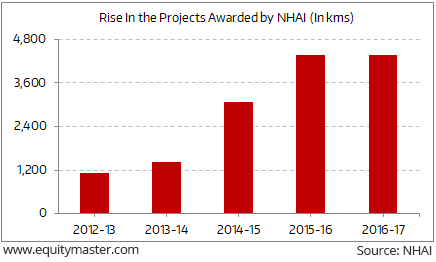- Home
- Todays Market
- Indian Stock Market News September 12, 2017
Sensex Up Over 170 Points; Realty Stocks Witness Buying Tue, 12 Sep 11:30 am
After opening the day firm, stock markets in India maintained their tempo. Sectoral indices are trading on a positive note with stocks in the realty sector and oil & gas sector witnessing maximum buying interest.
The BSE Sensex is trading up 175 points (up 0.6%) and the NSE Nifty is trading up 49 points (up 0.5%). The BSE Mid Cap index is trading up by 0.7%, while the BSE Small Cap index is trading up by 0.9%. The rupee is trading at 63.97 to the US$.
Transport minister Nitin Gadkari said that the National Democratic Alliance (NDA) government is exploring a plan to raise Rs 10 trillion from retirees and provident fund beneficiaries for large infrastructure projects.
The plan aims to raise money in tranches of Rs 100 billion by selling 10-year bonds at a coupon of 7.25-7.75%. Each tranche will be meant for a specific project.
One shall note that the NDA is emphasizing on roads and highways projects lately. Their seriousness was evident in 2017-18 Union Budget's massive Rs 910 billion allocation to road development.
The increased allocation has meant a significant uptick in road construction activity. From a mere nine km/day in 2014, road construction activity has surged to 22.5 km/day in the first quarter of this fiscal. This is evident from the chart below:
Government Has Set a Target of 15,000 kms in the Current Fiscal
The reasons contributing to this above uptick have been a change in the model on the basis of which road projects are now awarded.
As a recent edition of The 5 Minute WrapUp explains...
- For the past few years, the government has been awarding projects under the 'Build Operate Transfer' (BOT) model. Under this model, the developer had to arrange all of the financing for the project and was also responsible for toll collections, exposing them to the risk of low traffic.
Because these projects require a huge amount of capital, the debt levels of many companies reached critical levels. To address the issue, the government introduced the 'Hybrid Annuity Model' (HAM). Under this model, the developer arranges 60% of the financing, with the balance 40% coming from the government. Further, the developer has no traffic risk, meaning low passenger traffic will not impact revenues. The icing on the cake is that the developer gets fixed payments from the government every year until the time it operates.
The developers preferred this model, and in FY17, around 56% of all government projects were HAM projects.
That said, issues pertaining to land acquisition and environmental clearances still remain a roadblock in the road construction sector. Resolution of these issues could provide huge opportunities for road construction companies.
Just Released: Multibagger Stocks Guide
(2017 Edition)
In this report, we reveal four proven strategies to picking multibagger stocks.
Well over a million copies of this report have already been claimed over the years.
Go ahead, grab your copy today. It's Free.

In other news, as per a recent Reserve Bank of India (RBI) paper, farm loan waiver that amounts to Rs 880 billion and likely to be released in 2017-18 by seven states, including Uttar Pradesh and Maharashtra, may push inflation on permanent basis by 0.2%.
A Mint Street Memo released by RBI said that loan waivers could add to the fiscal burden over the medium term as they're essentially a transfer from taxpayers to borrowers.
Farm loan waivers have been announced intermittently by both the central and state governments in India to provide relief to farmers facing distress due to natural calamities/crop failure.
However, one shall note is that the recent farm loan waivers by government to different states have set a precedent of sorts.
Our big picture expert Vivek Kaul explains it succinctly in his Diary:
- The economist Alan Blinder in his book After the Music Stopped writes that the "central idea behind moral hazard is that people who are well insured against some risk are less likely to take pains (and incur costs) to avoid it."
This basically means that once the farmer sees a loan being waived off today, he will wait for elections in the future for the newer loans he takes on to be waived off as well. Essentially, he will see little incentive in repaying loans that he takes on in the future.
And the above situation is evident today. The recent farm loan waiver has also spoilt the credit discipline and set the wrong precedents.
What all of this means is the practice of loan waivers could lead to more serious problems. More so, it would very well hurt the economic growth in the long run.
For information on how to pick stocks that have the potential to deliver big returns, download our special report now!
Read the latest Market Commentary



Equitymaster requests your view! Post a comment on "Sensex Up Over 170 Points; Realty Stocks Witness Buying". Click here!
Comments are moderated by Equitymaster, in accordance with the Terms of Use, and may not appear
on this article until they have been reviewed and deemed appropriate for posting.
In the meantime, you may want to share this article with your friends!